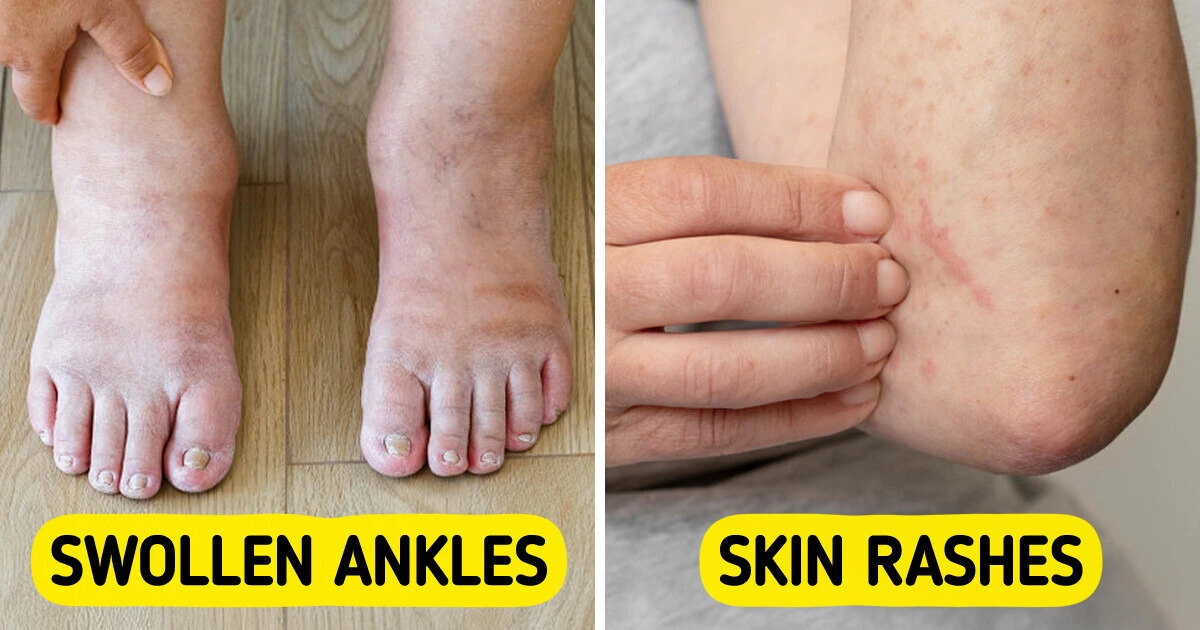While not all bodily signals may seem alarming, some common signs can serve as warnings of underlying health issues—yet they are often overlooked. When it comes to your health, it’s always better to err on the side of caution. If you notice unusual symptoms, scheduling a doctor’s appointment is a wise decision.
Please note: This content is provided for informational purposes only and is not a substitute for professional medical advice. Always consult your doctor for guidance regarding your health and medical conditions.
1. Wrinkly hands and fingers
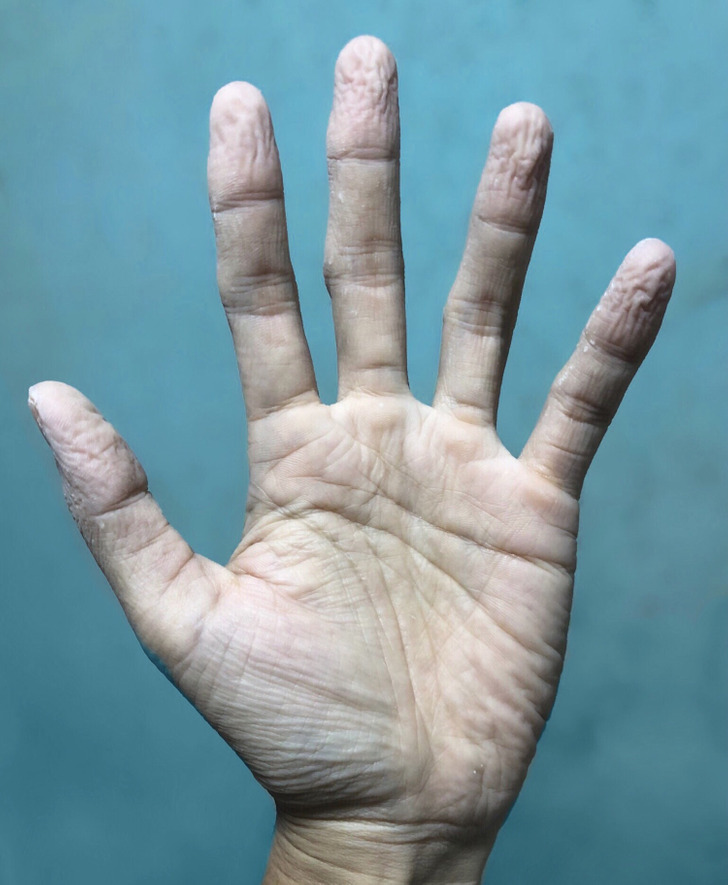
Wrinkles are a natural part of aging, and pruney fingers after soaking in water are completely normal. However, if your hands become wrinkled and lose elasticity faster than the rest of your body—without being exposed to water—it could signal an underlying issue. Possible causes include dehydration, poor blood circulation, or thyroid problems. Noticing and addressing these changes early can help you identify and manage potential health concerns.
2. Dandruff and hair loss
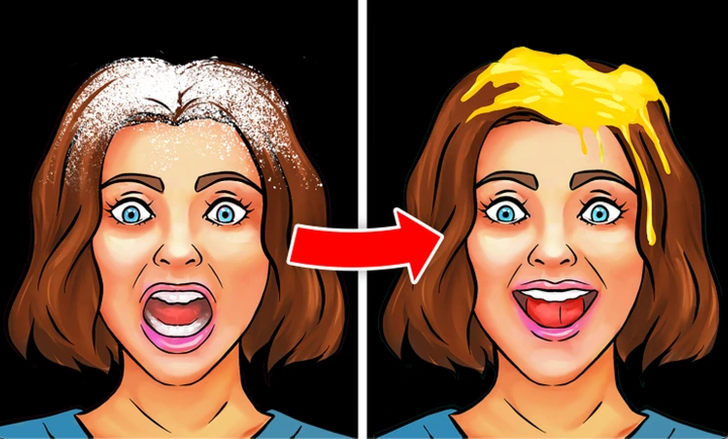
Struggling with a flaky scalp or hair loss? It might not just be a hair care problem—it could indicate that your body is missing key vitamins and nutrients. Deficiencies in zinc, iron, and B vitamins (such as B2, B3, B6, and B7) are often linked to these issues. Ensuring you get enough of these essential nutrients can help maintain a healthy scalp and promote stronger hair.
3. Skin rashes

Red and itchy skin is commonly associated with eczema, but rashes—particularly when accompanied by a fever—can also result from infections or contact with certain plants. While these spots may appear harmless initially, they can develop infections if ignored. That’s why it’s always wise to have them evaluated by a healthcare professional.
4. Swollen ankles
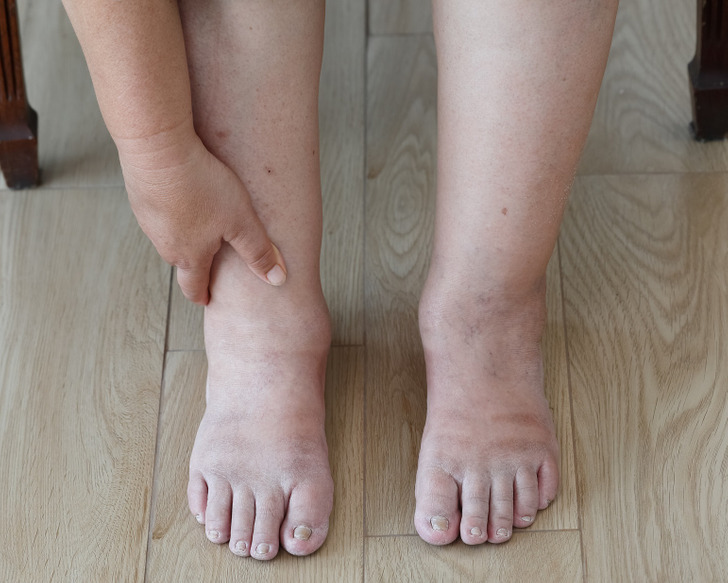
Swollen ankles are frequently associated with pregnancy, but if you’re not pregnant, they could indicate other underlying issues. Potential causes include poor blood circulation, heart problems, or an underactive thyroid. On a less serious note, consuming too much salt can also lead to water retention and swelling. If this occurs regularly, it’s a good idea to consult a doctor for further evaluation.
5. Constant thirst

Staying hydrated and drinking plenty of water is essential for overall health, but constantly feeling thirsty can be a common symptom of prediabetes. Other typical signs include fatigue and frequent urination, which often result from excessive thirst. If you experience these symptoms, it’s worth discussing them with a healthcare professional.
6. Random muscle twitches
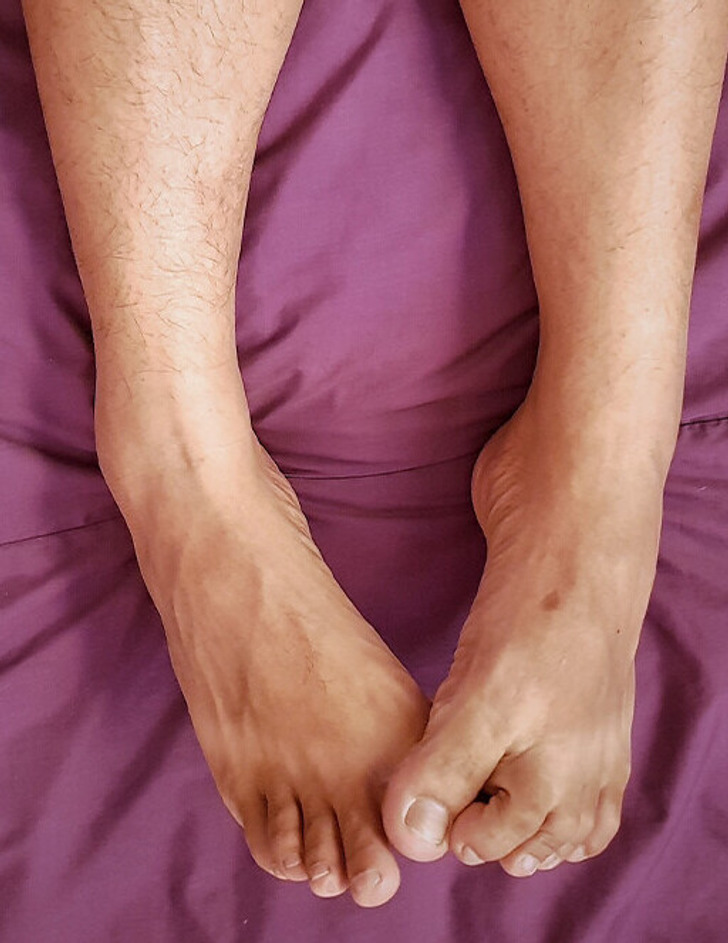
Muscle twitching can occur for various reasons, and in most cases, it’s harmless. Common triggers include exercise, stress, dehydration, and lack of sleep. However, in rare instances, frequent twitching could indicate a neurological disorder or kidney disease. If the twitching happens often or seems unusual, it’s a good idea to consult a doctor for further evaluation.
7. Snoring

Snoring can be a nuisance for your partner, but it’s usually harmless. However, in some cases, it may indicate obstructive sleep apnea (OSA)—a condition that disrupts breathing during sleep. If diagnosed with OSA, a doctor might suggest using a medical device to improve nighttime breathing. If your snoring is loud and occurs regularly, it’s a good idea to seek medical advice.
Your face can reveal a lot about your health. In this article, we explored 4 subtle signs that might signal underlying health issues. Check it out to learn what your skin, eyes, and lips could be telling you.
Preview photo credit freepik / Freepik
credits by: Brightside.me
